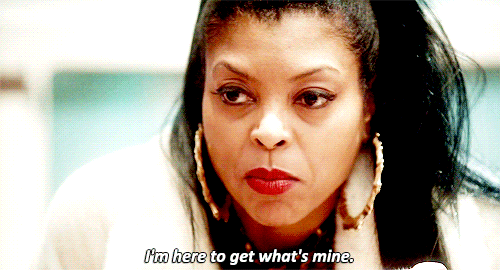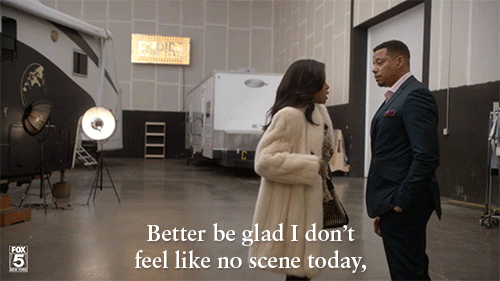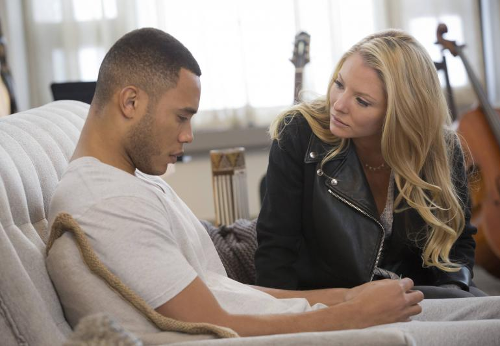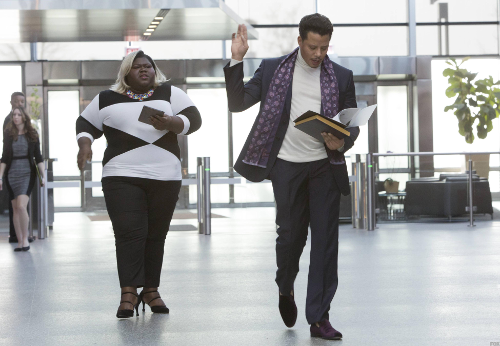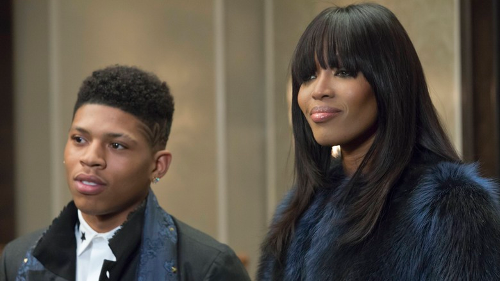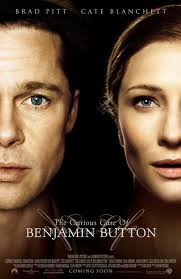The Curious Case of Benjamin Button occupies a curious space in my imagination. I asked to review it because I have long wanted to view the film—it’s been pretty high on my Netflix streaming queue for more than a year—and yet, every time I sit down to watch something on Netflix, I pass it over. Even though
TCCOBB was one of those must-see movies when it came out in December 2008, and as much as it seemed a neat little imaginative tale in reviews and commercials, I just found it really hard to get terribly excited about anything Brad Pitt is in. I’m not an anti-Brad Pitt snob, it’s just that I get enough Brad Pitt coverage in my favorite gossip blogs that I really don’t feel like seeing him any more than I have to.
Once I settled into the movie, however, I was able to enjoy it like the popcorn fare that it is—pleasant, but not terribly complex and with little nutritional value. My very first impression of the film was that it is one of those movies whose story is designed simply to make the viewer cry, and for me, it succeeded quite effectively in that regard. I’m a sucker for stories shaped like sadness. My second impression was to wonder why on earth I was being made to cry about the tragic love story of two imaginary white people against the back drop of Hurricane Katrina, which was a very real and epic tragedy for the city this story is set in (as well as for areas well outside New Orleans). To this second point I will return shortly.
But first, The Curious Case of Benjamin Button, based on a short story of the same name by F. Scott Fitzgerald, bears a family resemblance to another film adaption of a literary source, Forrest Gump, so I wasn’t terribly surprised to find out that screenwriter Eric Roth penned both films. In each film, we follow a quirky white boy in the south from his childhood through his adventures in adolescence and early adulthood and on into maturity. Covering such a large time span, the plots are largely episodic in nature but the feeling of an overarching structure is achieved through the protagonist’s varied and lifelong relationship with a woman he’s known since childhood. Both Benjamin’s Daisy and Forrest’s Jenny are remarkable, I think, only for their beauty and their rare understanding and appreciation of their respective misfit men. Both films also present what I think of as problematically unproblematic racial relationships. I don’t necessarily believe that every film, much less those that are comedic or fantastical in nature, needs to radically explore gender and racial relationships and stereotypes, but I suppose I don’t believe that we’re sufficiently post-racial to be able to gloss over historical struggles without such glossing over itself feeling like a distraction. And I think that’s part of what renders both TCCOBB and Forrest Gump ultimately conservative films.
Before I take on what I think is Benjamin Button’s most interesting relationship—that with Queenie, the African-American woman who adopts him, I want to talk about the film’s magical realism. While TCCOBB is clearly grounded in familiar historical periods and places—1918 New Orleans, Russia pre-World War II, a Pacific marine battle (if I recall correctly), not to mention the frame story set in a 2005 New Orleans on the brink of Hurricane Katrina—the world Benjamin Button lives in is also one of magic and wonder. In the frame story, Daisy’s daughter reads to her mother from Benjamin’s diary as Daisy prepares to die. The narrative in Benjamin’s diary is further framed by the story of Mr. Gateau’s backwards running clock, built out of Mr. Gateau’s desire for his son who died in World War I to return to him. Presumably, this backwards running clock had some kind of magical influence over Benjamin, who was born the size of a baby but with the features and ailments of an old man and, as anyone who is remotely familiar with the film’s concept knows, appears to grow younger as he in fact gets older. [I have to admit that I totally thought Benjamin was going to end up as a man-sized baby at the end, an idea I got from reading too much Dlisted where Michael K would go on and on about Cate Blanchett as an old lady having sex with Brad Pitt as a old man baby. Oh, Dlisted, I can’t believe I believed you! Also, try as I might, I cannot find the posts where Michael K says this, so maybe I imagined the whole thing.]
Other than these very important magical elements, the universe of TCCOBB is relatively realistic, save for its gliding over of both the women’s movement and the Civil Rights Movement. What are we to make of this? The way I see it, since TCCOBB works hard to incorporate historic events like World Wars I & II and Hurricane Katrina, (1) the filmmakers don’t think that race and gender figure very largely in 20th century and early 21st century American history; (2) they imagine that in the same magical world where a baby can be born with the features and ailments of an old man, issues of gender and race are magically non-issues; or (3) since this is Benjamin Button’s story, he just doesn’t give a crap about race and gender. Choice three is definitely the least plausible. Benjamin Button is one very nice guy who definitely gives a crap! (Maybe the point is “Here is a really nice white guy!”) He loves his black momma Queenie (as portrayed by Taraji P. Henson)! He loves Cate Blanchett’s Daisy, even when she’s an unlovable prick. I sympathize with filmmakers and writers of all kinds, for that matter, who want to tell stories set in the historic south about something other than race. Must every story set in the historic south be about race? No, certainly, I don’t think so. But when race comes up—as it most definitely does here since Benjamin is adopted by an African-American woman—it seems strangely unrealistic to neglect the complexity of historic race relationships.
Maybe the question I should be asking is what purpose does Queenie’s blackness serve? Does her blackness make her more accepting of Benjamin when even his own father abandoned him and others were repulsed by him? Does it make the film feel integrated and inclusive while still focusing mostly on white experience? Perhaps it’s better to ask what possibilities might Queenie’s blackness have presented in this magical version of historic New Orleans. If historical gender and racial issues are going to be ignored, I think it’s an exciting possibility to think of how they might have been re-imagined altogether. That’s one of the great possibilities of speculative fiction: it allows us an opportunity to imagine how else we might be—both in utopic and dystopic senses. But even as TCCOBB neglects historical oppression, it also fails to present an imaginative alternative, and that feels like a missed opportunity.
Essentially, Queenie, as a black woman, is limited in her employment as a servant to whites. And even though she fully accepts Benjamin as her son and Benjamin does seem to love and appreciate her, he seems to fail to see how the world treats her differently and, as he grows up, he surrounds himself with white people, almost forgetting about Queenie altogether. Ultimately, the stereotype of the nurturing black woman as a loving caretaker of whites is not greatly challenged or expanded upon. African Americans are presented largely as servants. And they are truly only “supporting” characters for the white characters. Benjamin doesn’t seem to see African-American women as potential lovers or mates—only as mother figures, or rather as his mother, since the only African-American woman presented in any kind of depth is Queenie. Most strikingly, he doesn’t use his inherited wealth to get Queenie her own place or otherwise take care of her, and the last time we see Queenie, she serves Benjamin and Cate cake before retiring to bed. My heart broke for Queenie that Benjamin didn’t see to her retirement in the same way that he looked after Daisy. Is TCCOBB saying that a black woman’s motherly love is expected for free but the romantic affections of a white woman are worth money? Certainly, I think the film suggests that while black women may make good enough mothers for white boys, those boys will grow up only to desire white women. Or perhaps the film simply suggests that black women are perfectly acceptable as caretakers, but they aren’t sexually desirable like white women are. If that last sentence seems far-fetched, think about how the black women who are seen as sex symbols in our culture have or affect features often associated with whiteness. At very least, it seems that the role of lover is elevated above that of mother.
This could have been a more radical movie—and not just one in which a white character has a revelation about what it’s like to know and love black people but one whose very imaginings might show how our racial conceptions and constructions might be otherwise. Instead, we get the opposite: race relations are sanitized of all conflict, while the segregation of family and romantic relations is upheld, with the sole exception of Queenie and Benjamin.
Queenie’s preposterous explanation that Benjamin is her sister’s son “only he came out white”—possibly the film’s most hilarious moment—suggests a missed opportunity. What if in this imagined world black women commonly had white babies and vice versa? Even in our own world, racial designations aren’t as clear cut as we often assume them to be. (See “Black and White Twins”; “Parents Give Birth to Ebony and Ivory Twins”; “Black Parents . . . White Baby”; and “My Affirmative Action Fail”.) What if TCCOBB totally upended everything we think we know about race and women’s roles in the south of the past? Wouldn’t that be interesting?
Moreover, it’s one thing to neglect race and gender issues of the past, but what about in the frame story of the present? All of the nurses and caretakers in Daisy’s hospital are also black women. Daisy is kept company by her daughter, Caroline, and a black woman the same age as Caroline, who eventually leaves to check on her son and never returns to the movie. WTF? Why is she there? Is she Caroline’s girlfriend? A good friend? If we’re not going to see her again, why is she there in the first place? Okay, I looked up the script. For what it’s worth, it specifies that she’s “a young Black Woman, a ‘caregiver,’” though nurses in scrubs are also present and Dorothy dresses in civilian clothes and spends most of her screen time thumbing through a magazine. I so wish that Dorothy had been Caroline’s girlfriend or wife.
And what of Hurricane Katrina? In the end, all we see is water rising in a basement, flooding the old train station clock. There’s nothing about what happened in the hospitals, in the Ninth Ward, in the attics, in the streets, in the Superdome. I don’t even know what to say about that. That the preposterously tragic love of two imaginary white people trumps and erases all the suffering of real, mostly black people? Even through my great big ole sappy tears as Daisy dies, that just doesn’t feel right to me.
Finally, I am reminded that part of my reluctance to watch The Curious Case of Benjamin Button lies with its format as a film. Over the past decade, I’ve grown to prefer serial dramas to just about everything—film, books, whatever (though I’ve recently become consumed with popular fantasy and horror novels). HBO led the way and remains at the top of the serious television game. Deadwood and The Sopranos developed true ensemble casts with richly developed morally-complicated characters shaped by their social, historic, and economic milieux, with deft dialogue that could be emotionally moving or belly-shaking hilarious. The mere invocation of Hurricane Katrina makes it impossible for me not to compare the long but ultimately light fare of The Curious Case of Benjamin Button, which aside from its technical and artistic wizardry is ultimately forgettable, with the robust, lifelike, brilliant work of art that is Treme. Where TCCOBB uses its historical setting like a painted backdrop to affect historic depth without actually engaging history, Treme is a masterpiece of the fictionalized drama of the everyday real life of one of America’s great cities. Where women and African Americans are given roles in TCCOBB that support white stars, every character in Treme’s diverse cast is treated as the star of his or her own life, and they are richly complicated people whose lives are never defined solely by their relationship to white main characters. So that’s my loopy recommendation about The Curious Case of Benjamin Button: you’re better off watching Treme.
The Curious Case of Benjamin Button was nominated for thirteen Academy Awards in 2009. It won three Oscars for art direction, makeup, and visual effects. It was nominated for cinematography, costume design, directing, film editing, original score, sound mixing, best picture, best actor in a leading role, best actress in a supporting role, and best adapted screenplay.
